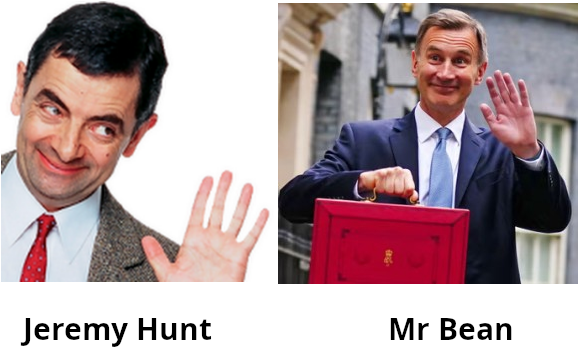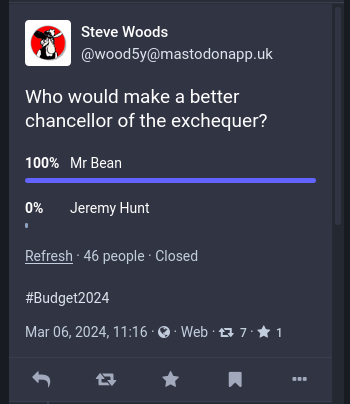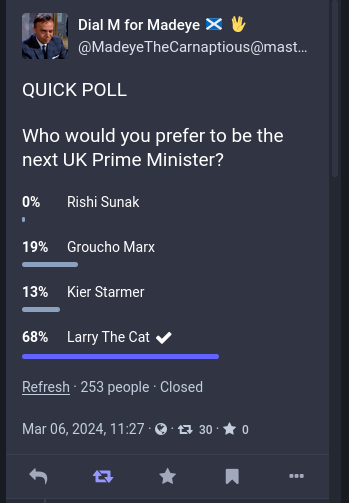Dire outlook for Tories
Yesterday saw Jeremy Hunt, a man who does very poor Chancellor of the Exchequer impression (preceding which he had pretended to be Secretary of State for Health, managing to incur the ire of hospital doctors while in office. Ed.), present his budget to parliament.
Many folk have remarked on social media recently on the similarity between Mr Hunt and Rowan Atkinson’s Mr Bean sitcom character, so here’s a handy image to see if their affirmations are correct.

Sticking with the same two characters, your ‘umble scribe decided to have some fun yesterday on Mastodon with a poll asking who would make the better finance minister. The unsurprising results are shown below.

And that’s not the end of the bad news for the Blue Team. Another poll in which I participated asked who readers would like to be the next prime minister, giving the options of incumbent Rishi Sunak, Labour leader ‘Sir’ Keir Starmer, the late lamented Groucho Marx, and Larry the Downing Street mouser.

 Yes, that’s right Larry the Cat, the Downing Street moggy, beat both professional politicians, as did the runner-up, a Marxist, albeit one from the Groucho wing of the movement.
Yes, that’s right Larry the Cat, the Downing Street moggy, beat both professional politicians, as did the runner-up, a Marxist, albeit one from the Groucho wing of the movement.
 We are cursed to live in the proverbial interesting times.
We are cursed to live in the proverbial interesting times.
Even though Larry resigned from his post under the premiership of disgraced former party-time alleged prime minister Alexander Boris de Pfeffel Johnson (posts passim), as did lots of other staffers, he soon returned to his old stomping ground during the lettuce shelf life length premiership of the disastrous free marketeer Mary Elizabeth Truss, the free marketeer the markets rejected.



